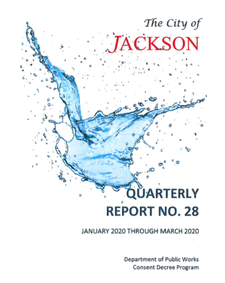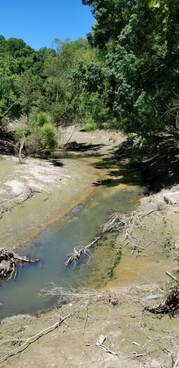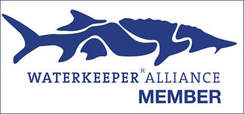
476,541,680 gallons of raw sewage leaked directly to the Pearl River from one location at 408 Jefferson St, Jackson during the heavy rain and flood events of the first 3 months of 2020. The largest single-day discharge occurred on January 11 when 6,831,520 gallons of raw sewage flowed from the Jefferson St manhole to the Pearl and then downriver. This is enough raw sewage released in ONE DAY to fill 10 Olympic swimming pools.
During the same quarter of Jan-Mar 2020, 36 additional Sanitary Sewer Overflow (SSO) discharges to "Waters of the State" occurred and prohibited bypasses at the Savanna Street Wastewater Treatment Plant (WWTP) released 5.7 billion gallons of minimally treated sewage to the Pearl.
Is public notification required during a Sanitary Sewer Overflow (SSO) event?
THE COMMUNITY HAS A RIGHT TO KNOW WHEN MILLIONS OF GALLONS OF RAW SEWAGE ARE BEING RELEASED TO WATERS OF THE STATE AND TO THEIR NEIGHBORHOODS.

What is a a Sanitary Sewer Overflow?
A Sanitary Sewer Overflow (SSO) is an event in which untreated sewage is discharged from the sewage collection system into the environment prior to reaching the sewage treatment facilities. These discharges endanger human health, cause property damage, and degrade our local water quality.
What causes SSO events? The SSO events experienced by the City of Jackson collection system were caused by excessive flow, collapsed pipes, grease/fat buildup, and blockages from roots and solids. According to the Jan-Mar 2020 Quarterly Report, "The Jackson area received 29.74" of rainfall, or 105% above normal during the reporting period. Also during January and February 2020, the Pearl River was at or above flood action stage of 24 feet for 44 days. It should also be noted that the Pearl River reached a peak level of 36.67 feet on February 17, 2020, which is the third highest historical peak ever recorded. During this period, the system experienced a dramatic increase in inflow. Aerial inspection by the Mississippi Department of Emergency Management and the City of Jackson noted several damaged manholes that allowed floodwaters to enter the collection system." EPA Consent Decree In November 2012, the Jackson City Council entered into a consent decree with the EPA and MDEQ regarding operations at the Savanna Street Wastewater Treatment Plant. The consent decree required the City to pay a civil penalty of $437,916, execute a $875,000 environmental project, and overhaul its wastewater treatment plant and collection systems. The City was given 18 years to fully comply, with the vast majority of the work to be completed within the next 11 years (by 2023). The City of Jackson was required to develop prioritization work plans, rehabilitation plans, preventative maintenance programs and supplemental environmental program timelines. The City is required to submit quarterly, semi-annual and annual reports to the EPA and must publish these on their website. Recent Yearly Sewage Overflow Totals 2018:
Where have the City of Jackson 2020 SSO events to Waters of the State occurred?
Check out our interactive map below to find out if a SSO event that released sewage to Waters of the State occurred in your City of Jackson neighborhood. Click on the pinned locations for information about the date, location, cause of the overflow, and amount of untreated sewage released. Large Scale Map Link |
AuthorPearl Riverkeeper is a licensed member of the Waterkeeper Alliance, the largest and fastest growing nonprofit solely focused on clean water. Archives
July 2024
Categories |
|
Ready to support our work for Clean Water and Healthy Rivers?
|
|

 RSS Feed
RSS Feed
